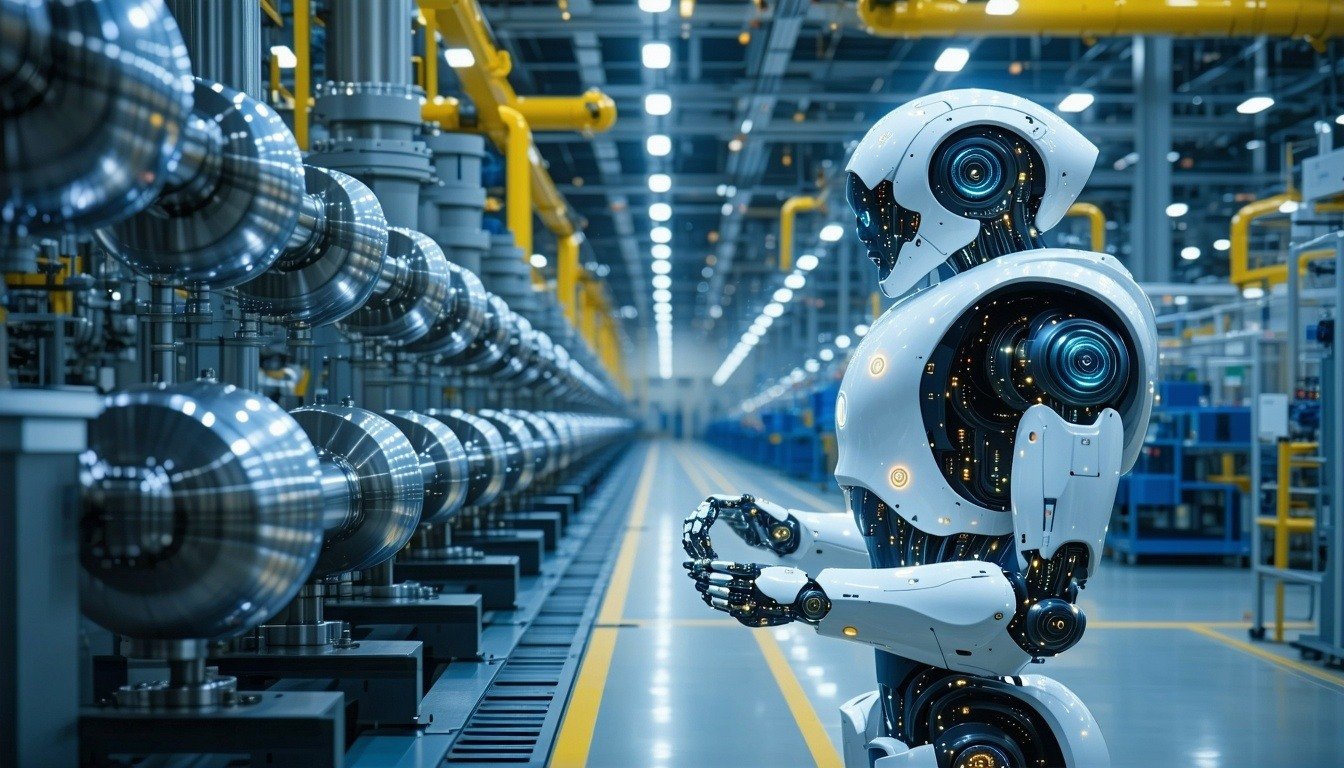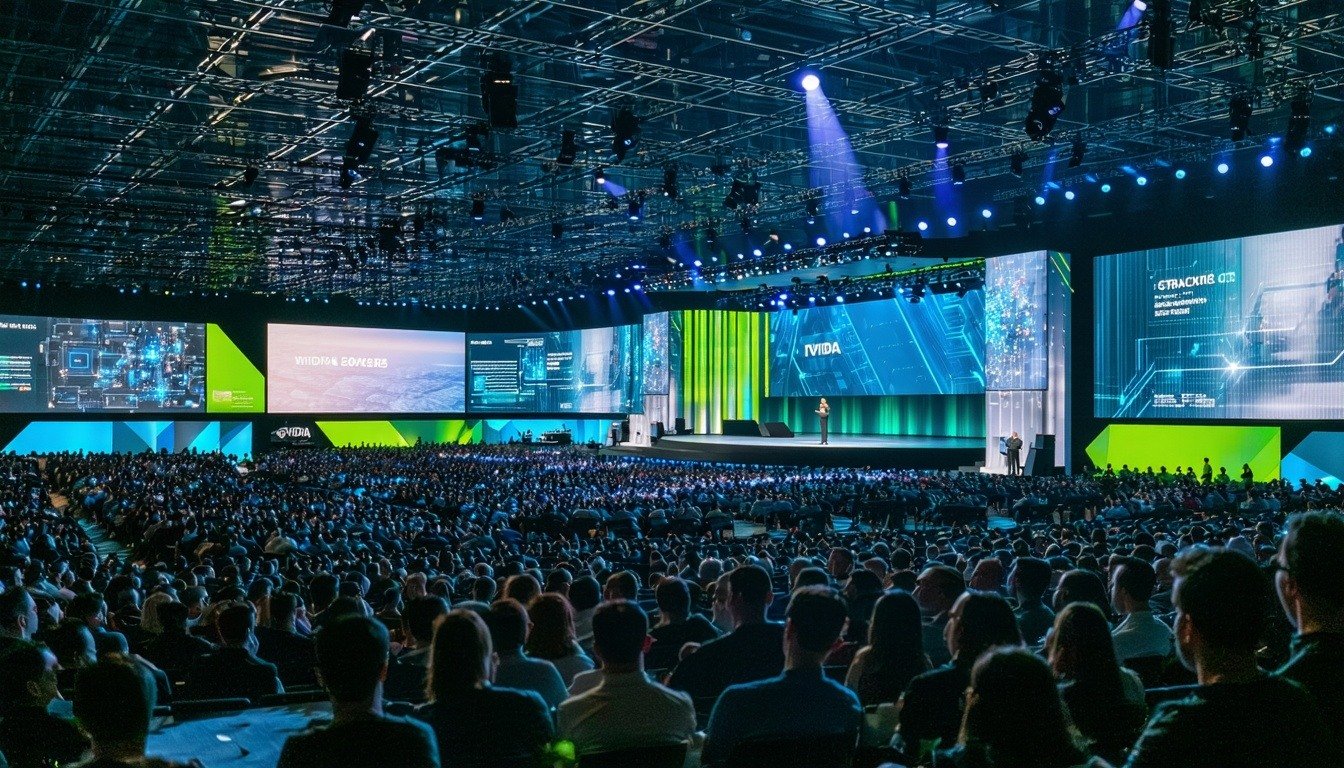Generative Artificial Intelligence (Gen AI) radically changes how supply chain leaders manage operations. Gen AI’s ability to analyze vast datasets and identify patterns enables organizations to accurately forecast future demand, automate document generation, and pinpoint logistical bottlenecks. Moreover, Gen AI tools allow supply chain managers to simulate specific scenarios so that they are prepared for unforeseen events (e.g., natural disasters, geopolitical tension, etc.).
Household brands within the supply chain software market, such as Blue Yonder, Manhattan Associates, and others, have integrated Gen AI-powered tools into their products. Although these offerings present potential time savings and sales increases, implementing Gen AI into the supply chain comes with several key challenges.
Gen AI’s Role in Supply Chain
Gen AI is revolutionizing workflows by simulating complex supply chain disruptions, generating predictive models for inventory planning, and optimizing logistics in real time. Its ability to generate tailored recommendations and create dynamic scenarios enables businesses to respond faster and more effectively to emergent challenges. Additionally, companies like Zebra Technologies have demonstrated how Gen AI can streamline workforce management.
Supply chains can benefit from Gen AI in the following ways:
- Enhanced Risk Management: Simulates disruptions and creates adaptive strategies.
- Improved Demand Forecasting: Delivers highly accurate and personalized predictions.
- Optimized Logistics: Streamlines trucking fleet routes and reduces transportation costs.
- Supplier Insights: Identifies risks and improves collaboration.
- Workforce Efficiency: Automates training content and enhances communication.
Gen AI is already making a tangible impact across the supply chain, as companies integrate these advanced tools into their operations. Below are some real-world examples of how leading supply chain software vendors are leveraging Gen AI to enhance efficiency and decision-making for customers.
Blue Yonder: Enhanced Insights and Automation

Blue Yonder's Orchestrator harnesses Natural Language Processing (NLP) to centralize data insights and generate actionable recommendations.
- User-Prompted Insights: Users guide the system through prompts to collate data from multiple sources for analysis.
- Semi-Automation: Processes can be semi-automated, allowing businesses to streamline operations with minimal manual intervention.
Infor: Comprehensive Operational Support

Infor integrates Gen AI into various business functions, improving communication, analysis, and reporting.
- Workforce Management: Enables text-based interactions to confirm shift details or access training materials.
- Contract and Project Management: Automates contract comparisons and generates executive summaries with recommended actions.
- System Insights: Provides detailed reports, including warehouse performance comparisons and impact analyses for specific products.
Manhattan Associates: Tailored Assistance Solutions

Manhattan Associates offers two tiers of Gen AI support through its Manhattan Active platform.
- Manhattan Assist: Included in the standard subscription, it guides users through core processes like creating transport orders.
- Manhattan Active Maven: A premium solution offering specialized assistance, such as acting as a customer service chatbot or supporting service agents.
O9: Advanced Scenario Planning and Analysis

O9’s Gen AI Digital Assistant complements its Expert Recipe Library, enabling users to guide analyses and scenario planning.
- Chat-Driven Insights: Users can edit data via chat and receive analyses based on their inputs.
- Scenario Planning: If additional data are required, the system prompts users to fill in gaps before proceeding with actions.
Epicor: Embedded Intelligence within ERP
![]()
Epicor integrates Gen AI through its Prism tool within the Epicor Industry ERP Cloud.
- Procurement and Production Insights: Provides data-driven insights without requiring users to sift through source documents.
- Automated Communication: Sends supplier Requests for Quotation (RFQs) and analyzes responses to determine optimal pricing.
- Code Assistance: Assists in creating automated workflows.
Kinaxis: Disruption Management and Forecasting

Kinaxis embeds Gen AI in its Maestro platform, formerly known as RapidResponse, to help users respond to dynamic supply chain scenarios.
- Scenario Analysis: Generates recommendations based on events or disruptions.
- Forecasting and Planning: Provides demand change forecasts and suggests actionable steps.
- Interactive Execution: Users can implement plans via the chat function, streamlining the decision-making process.
Challenges with Implementing Gen AI in Supply Chains
While Gen AI offers immense opportunities for time and cost savings, deploying it within supply chain frameworks presents several obstacles for solution developers and end users alike.
- Solution Provider Challenges: Creating Gen AI applications requires extensive capital, time, and expertise, often without assurance of adoption or measurable impact. Scaling solutions to enterprise-wide use cases frequently depends on alliances with System Integrators (SIs) or cloud providers. Unfortunately, these partnerships remain costly and underdeveloped. Additionally, determining how to commercialize AI effectively remains elusive due to a lack of standardized guidelines in the industry.
- End-User Challenges: Organizations must allocate significant resources to prepare and adapt their systems for Gen AI integration. Data restructuring, including migration to compatible frameworks, is often necessary. Limited transparency in closed-source Large Language Models (LLMs) complicates understanding of how conclusions are reached. Moreover, models can generate misleading outputs or errors stemming from biased datasets or flawed assumptions. This makes the development of safeguards essential to Gen AI adoption.
- Challenges Facing Both: Gen AI adoption in supply chains faces several shared challenges. Data ownership and privacy are significant concerns, as third-party models often lack transparency regarding data storage and usage. Meanwhile, inconsistent global regulations—self-regulation in the United States versus stricter policies in Europe—complicate deployments for multinational companies. Reliability is another hurdle; supply chain operations demand low latency and high availability, but achieving consistent performance at scale remains difficult. Additionally, fragmented data systems and silos limit AI's ability to provide holistic insights, weakening its overall effectiveness. Finally, a lack of skilled talent poses challenges in developing, maintaining, and scaling AI solutions. As Gen AI deployments grow, managing and optimizing multiple applications becomes both time-intensive and costly, further slowing the pace of adoption.
Tackling these challenges requires several strategic steps encompassing Gen AI development, rollout plans, acquisitions/partnerships, cybersecurity, regional considerations, and more. ABI Research provides these recommendations, as well as a deeper analysis of how Gen AI is transforming the supply chain, in its presentation, Generative AI in the Supply Chain: Planning & Execution Software.





